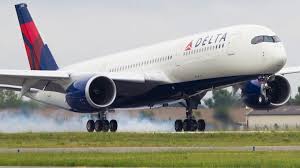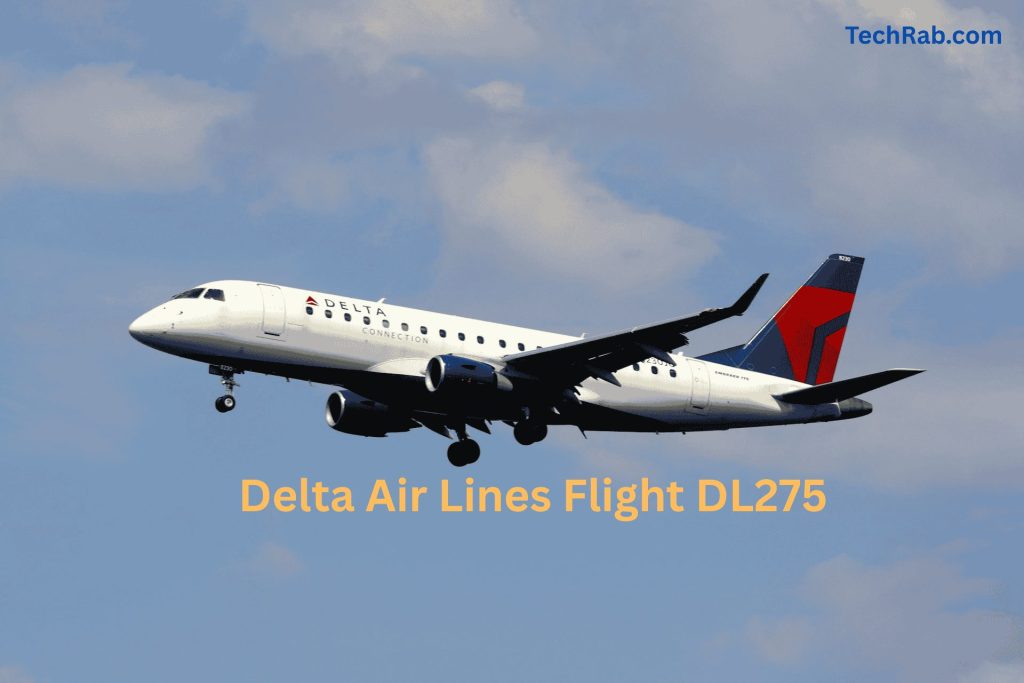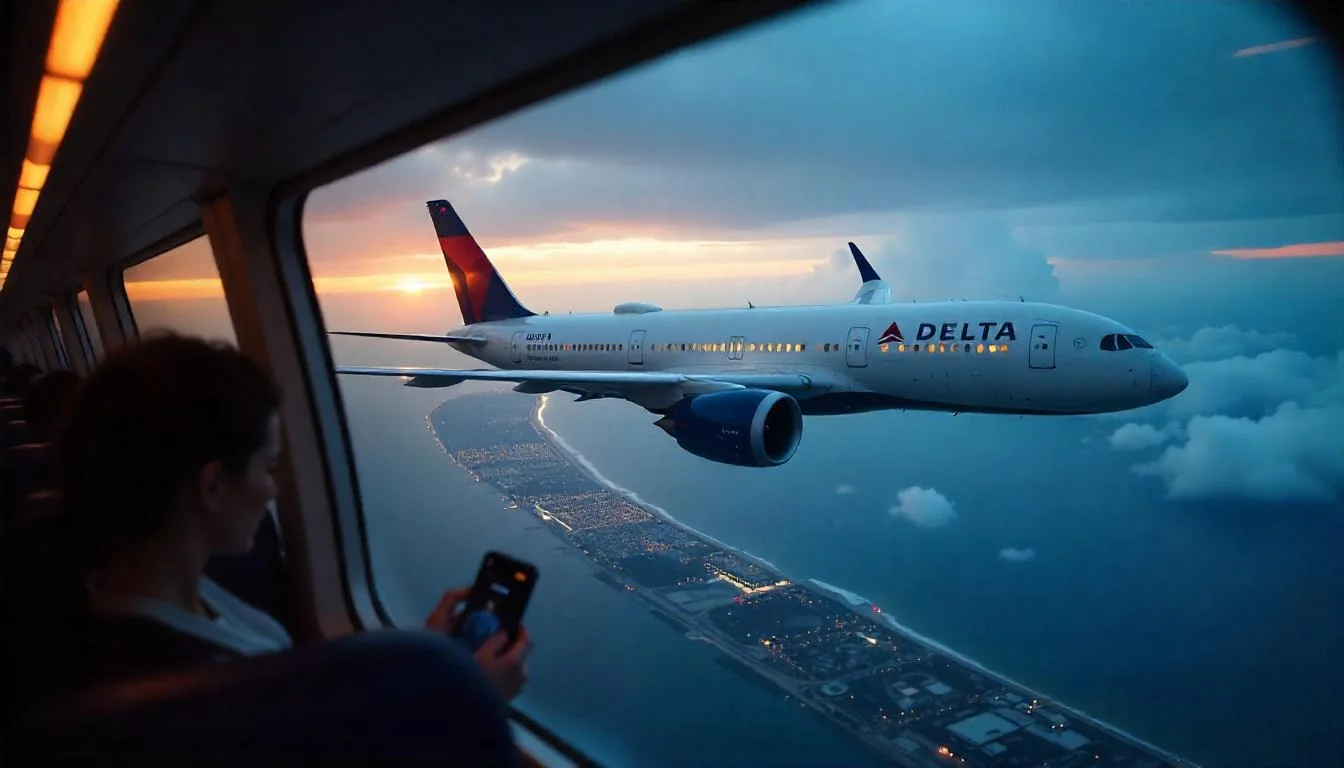Delta Flight DL275 Diverted LAX: What to Know
Navigating the world of air travel can sometimes come with unexpected twists and turns. One minute you’re settling in for your journey, and the next, you hear the pilot announce a change of plans. This is a situation many travelers have faced, including those wondering about the incident where delta flight dl275 diverted lax. Understanding why diversions happen, what your rights are, and how to handle the situation can make a stressful experience much more manageable.
This guide will walk you through the common reasons for flight diversions, what happens when a plane lands at an unscheduled airport like Los Angeles International Airport (LAX), and what steps you can take as a passenger. While we’ll use the delta flight dl275 diverted lax event as a reference point, the information here is designed to help any traveler caught in a similar situation.
Key Takeaways
- Safety First: Flight diversions are almost always made for the safety and well-being of passengers and crew.
- Common Causes: Medical emergencies, mechanical issues, and severe weather are the top reasons for a flight to change its destination mid-journey.
- Passenger Rights: Airlines have a ‘Contract of Carriage’ that outlines their responsibilities, which often includes rebooking and, in some cases, providing accommodation.
- Stay Informed: The best thing you can do during a diversion is stay calm, listen to crew instructions, and use airline apps for real-time updates.
Why Do Flights Like Delta DL275 Divert?
When you hear that a delta flight dl275 diverted lax, the first question that often comes to mind is, “Why?” Flight diversions are not taken lightly by airlines. They represent a significant disruption to schedules and come at a considerable cost. The decision to divert is always prioritized around one thing: safety. A captain will only change course if continuing to the original destination is deemed less safe than landing at a closer, suitable airport. There are several primary categories of issues that can prompt this decision, each requiring immediate attention from the flight crew and ground support. These are events that are often unforeseen and can develop rapidly, requiring quick and decisive action to ensure everyone on board remains safe.

The Most Common Reasons for Flight Diversions
A wide range of factors can lead to a flight diversion. Understanding these can help demystify the process and reduce anxiety if it happens to you.
Medical Emergencies Onboard
One of the most frequent reasons for a diversion is a medical emergency. If a passenger or crew member experiences a serious health issue that requires immediate medical attention beyond what the crew can provide, the captain will divert to the nearest airport with adequate medical facilities. The crew is trained in first aid and can consult with doctors on the ground, but some situations necessitate a hospital visit as soon as possible. The health and safety of the individual in distress become the top priority for everyone on the aircraft, making a diversion the only responsible choice.
Unexpected Mechanical Issues
Modern aircraft are incredibly complex machines, and while they are maintained to the highest standards, mechanical issues can still occur. This could be anything from a sensor providing an unusual reading to an issue with the landing gear or cabin pressure systems. When a potential mechanical problem arises, pilots follow strict protocols. If the issue warrants it, they will divert to an airport where the aircraft can be inspected and repaired by qualified technicians. This is a precautionary measure to prevent a minor issue from becoming a major one, ensuring the complete safety of the flight.
Severe Weather Encounters
Weather is a powerful and unpredictable force. While flights are often routed around storms, sometimes weather conditions can change unexpectedly or be more severe than forecasted. This can include thunderstorms, heavy icing conditions, or extreme turbulence. If flying through or around the weather is not a safe option, the flight will divert to wait for conditions to improve or to take a new, safer route. A diversion may also happen if the weather at the destination airport, such as dense fog or high winds, makes landing unsafe.
The Financial and Logistical Impact of a Diversion
When an event like delta flight dl275 diverted lax occurs, it sets off a complex and costly chain reaction. From a financial standpoint, a diversion is expensive for the airline. It involves extra fuel burn, landing fees at the unscheduled airport, and potential costs for re-accommodating passengers, such as hotel vouchers and meal stipends. Beyond the direct costs, there’s a significant logistical puzzle to solve. The aircraft and its crew are now out of position, which can cause a domino effect, leading to delays or cancellations for subsequent flights that were scheduled to use that same plane or crew. Ground staff at the diversion airport must also scramble to handle the unexpected arrival, from parking the aircraft to deplaning passengers and managing their connections.
What Happens When Your Flight is Diverted to LAX?
Los Angeles International Airport (LAX) is one of the busiest airports in the world and a major hub for Delta Air Lines. If your flight is diverted there, you are in a good position for recovery. Once the aircraft lands safely at LAX, the immediate reason for the diversion is addressed. If it was a medical emergency, paramedics will meet the plane at the gate. If it was a mechanical issue, maintenance crews will begin their inspection. Passengers will typically be asked to deplane and wait in the terminal. Airline staff will then work to re-route passengers to their final destination, which could involve booking them on the next available flight or, if the original aircraft is cleared to fly, re-boarding for the final leg of the journey.
Understanding Your Rights as a Passenger
When a delta flight dl275 diverted lax, passengers rightfully want to know what the airline owes them. Your rights are outlined in the airline’s Contract of Carriage, a legal document that explains the policies for situations like delays, cancellations, and diversions. While the U.S. Department of Transportation doesn’t have a hard-and-fast rule requiring compensation for delays, airlines generally provide assistance. If the diversion is due to a reason within the airline’s control (like a mechanical issue), they are more likely to offer meal vouchers and hotel accommodations if the delay is significant or overnight. If the cause is outside their control (like weather), their obligation is primarily to get you to your destination on their next available flight.
Steps to Take During a Diversion
Finding out your flight is diverting can be unsettling, but here’s what you can do to make the process smoother:
- Stay Calm and Listen: Pay close attention to announcements from the flight crew and pilots. They will provide the most accurate information.
- Contact the Airline: Once you are safely on the ground, use the airline’s mobile app or call their customer service line. Gate agents will be very busy, so using digital tools can sometimes get you rebooked faster.
- Keep Your Receipts: If you incur expenses for food or lodging, keep all your receipts. You may be able to get reimbursed by the airline or through your travel insurance.
- Be Patient and Polite: Airline staff are working to help hundreds of people at once. A little patience and kindness can go a long way.
For those looking for more general travel tips and destination ideas once you finally reach your destination, resources like https://versaillesblog.com/ can offer inspiration for your next adventure.
How Airlines Handle Rebooking and Connections
After a delta flight dl275 diverted lax, the airline’s primary goal is to get passengers to their final destination as quickly and safely as possible. This process is a massive logistical undertaking. Rebooking agents will work to find seats on other flights, not just with Delta but sometimes with partner airlines. Passengers with tight connections are prioritized. The airline’s computer systems will automatically try to rebook many passengers, but it’s always a good idea to proactively check your options on the app or with an agent. If the original aircraft is repaired and cleared to fly, the airline may choose to have all passengers re-board and continue the journey. The course of action depends entirely on the nature of the diversion and the resources available.

Summary of Diversion Scenarios
|
Aspect |
Medical Emergency |
Mechanical Issue |
Weather Event |
|---|---|---|---|
|
Primary Cause |
Passenger or crew health crisis. |
Equipment malfunction or sensor warning. |
Unsafe flying conditions (storms, fog, etc.). |
|
Airline Response |
Land at nearest airport with medical facilities. |
Land at a suitable airport for inspection/repair. |
Divert to an alternate airport and wait. |
|
Passenger Action |
Wait for crew instructions; rebooking follows. |
Deplane and await updates on repair or rebooking. |
Stay in terminal; await weather improvement. |
|
Likely Compensation |
Limited, as it’s an uncontrollable event. |
Often includes meal/hotel vouchers for delays. |
Limited, as it’s an uncontrollable “Act of God.” |
Conclusion
An event like a delta flight dl275 diverted lax can be disruptive, but it’s a standard safety procedure in the aviation industry. Airlines prioritize the well-being of their passengers and crew above all else. By understanding the reasons behind diversions, knowing your rights, and having a clear plan of action, you can navigate the situation with confidence. Remember to stay informed through official airline channels, be patient with the staff who are working to assist you, and focus on the fact that the diversion was made to ensure your safety. With a little knowledge, an unexpected detour can become just a small bump on your travel journey.
Frequently Asked Questions (FAQ)
1. Will I get compensation if my flight is diverted?
Compensation depends on the reason for the diversion. If it’s within the airline’s control (e.g., mechanical), you are more likely to receive vouchers for food and hotels. If it’s due to an uncontrollable event (e.g., weather or medical emergency), the airline’s main obligation is to rebook you on the next available flight.
2. What happens to my checked luggage during a diversion?
In most diversion scenarios, your checked luggage will remain on the aircraft. It is typically not offloaded unless you are being rebooked on a different airline or will have a very long (overnight) delay where you need your bags. The airline will transfer your bags to your new flight.
3. What is the first thing I should do after my flight diverts?
The first thing you should do after landing safely is to listen for instructions from the airline crew. Then, check the airline’s mobile app for updates on your flight status and rebooking options. This is often the fastest way to get information.
4. How do I find out the exact reason for the diversion?
The pilots will usually make an announcement explaining the general reason for the diversion, such as a medical, mechanical, or weather issue. For privacy and security reasons, they may not share highly specific details.
5. Can I choose to end my journey at the diversion airport?
Yes, you generally have the option to end your trip at the diversion city. However, if you choose to do so, the airline’s obligation to you typically ends there. They will not provide onward transportation, and the remaining legs of your ticket will likely be canceled. You would also need to arrange for your checked bags to be retrieved.













Post Comment